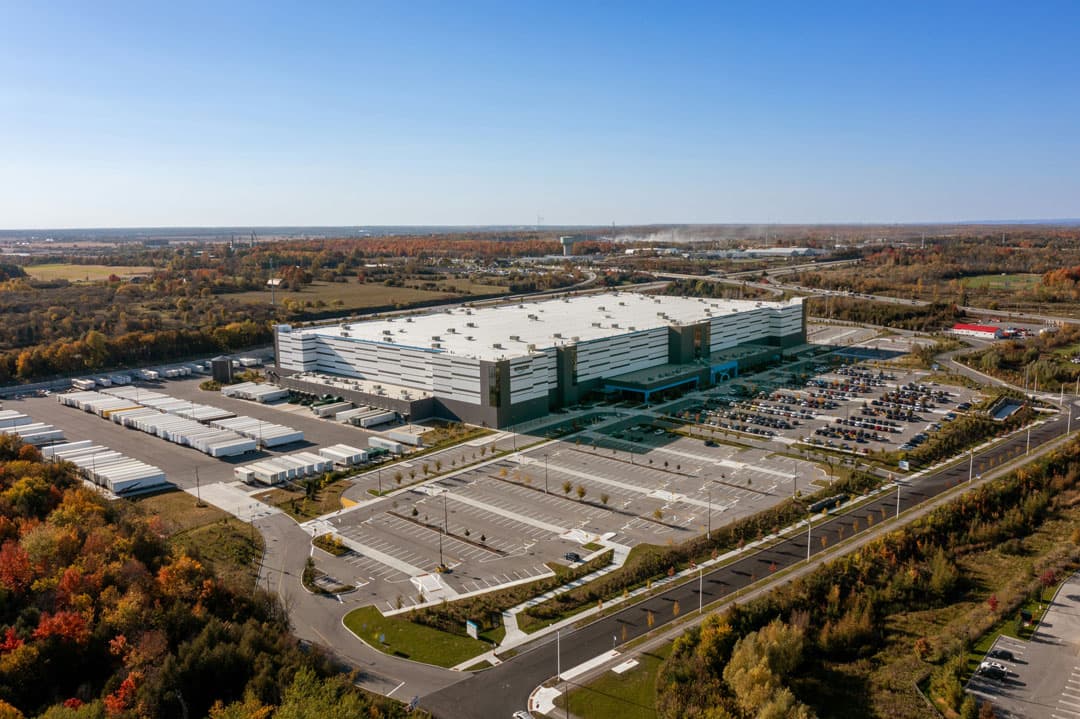Industrial Parks, Industrial Zones or Both? Making the Right Investment Choice
Go to all updates
Are you an investor looking to expand or establish your industrial presence? The choice between industrial parks and industrial zones can significantly impact your business operations and growth trajectory. Understanding the nuances between these two options is crucial for making an informed decision that aligns with your goals.
The concept of industrial zones and parks traces its origins back to the 19th century when they were strategically established in close proximity to urban centers. Since then, their development has been closely intertwined with the digitalization of industry, evolving to meet the changing needs of manufacturing in a rapidly advancing world.
Industrial parks, often situated in suburban or urban fringe areas, stand out for their comprehensive infrastructure network. Equipped with essential amenities such as reliable access to electricity, water, and natural gas, along with specialized features like truck doors, high-durability flooring, and counterfire networks, these parks offer a turnkey solution for businesses.
On the other hand, industrial zones, while also catering to industrial production, differ in their spatial arrangement and infrastructure. These zones, often integrated within urban settlements, may lack the complete infrastructure network of industrial parks but provide an attractive location for industrial companies, especially those looking for pre-designed spaces conducive to manufacturing.
The advantages offered by industrial parks and zones are manifold. By consolidating industrial activities within designated areas, both models streamline operations, reduce costs, and facilitate better resource management. Moreover, their structured approach aids in environmental management by centralizing efforts to mitigate pollution and optimize sustainability practices.
Consider these strengths of an Industrial Park:
- Industrial parks set themselves apart by offering state-of-the-art manufacturing facilities, a key draw for businesses seeking modern infrastructure. Equipped with cutting-edge machinery and advanced technology, these facilities enhance production capabilities and operational efficiency. Industrial parks often invest in the latest manufacturing technologies, providing tenants with access to innovative tools that contribute to their competitive edge in the market. For investors, this means an opportunity to establish operations in an environment that fosters continuous technological advancement and growth.
- The establishment of industrial parks creates employment opportunities, attracting a diverse and skilled workforce to the surrounding areas. Businesses within these parks benefit from tapping into a local talent pool enriched with individuals possessing prior training and expertise in various industries prevalent in the park. This ready availability of skilled personnel not only facilitates recruitment but also ensures that businesses can maintain competent workforces. This strategic advantage significantly reduces the challenges associated with talent acquisition, ultimately contributing to the success and sustainability of enterprises within the industrial park.
- Safety and environmental considerations take center stage in the planning and construction of industrial parks. Stringent adherence to building laws, fire safety regulations, and environmental standards is a hallmark of these establishments. Industrial parks prioritize sustainability by implementing waste management systems that responsibly dispose of garbage, minimizing their environmental impact. This commitment to compliance not only ensures the well-being of the community but also positions industrial parks as responsible corporate citizens dedicated to environmental stewardship.
- Industrial parks go beyond providing physical space; they offer valuable support services to businesses. Administrative assistance, legal and accounting services, and resources for market research are among the support structures available to tenants. Moreover, industrial parks serve as hubs for networking opportunities, facilitating collaboration and partnerships among businesses. The co-location of diverse industries within the park creates a vibrant ecosystem where companies can work together on initiatives, share expertise, and build strategic alliances. This interconnected environment contributes to the growth and success of individual enterprises within the industrial park.
Dawa Industrial Zone: A Two for One Advantage
Dawa Industrial Zone caters to diverse industrial needs with a range of specialized industrial parks, each offering tailored spaces optimized for specific industries. From textiles and pharmaceuticals to technology and automotive manufacturing, businesses have access to dedicated spaces equipped with essential infrastructure and amenities. Whether you're a start-up or an established enterprise, Dawa Industrial Zone provides the ideal environment to thrive and expand within industry-specific clusters designed to foster collaboration and innovation.
Again, parks within the Dawa Industrial Zone feature robust utility infrastructure, including reliable electricity, water, and gas services. Designed with redundancy in mind, these facilities minimize the risk of power outages and water shortages, providing businesses with the reliability and continuity necessary for sustained productivity. By offering readily available utility services, industrial parks empower businesses to focus on core operations without disruptions, fostering a conducive environment for growth and innovation.
Moreover, Dawa Industrial Zone boasts a robust infrastructure network that facilitates seamless connectivity and logistical efficiency with convenient access to major transportation routes. Whether by road, rail, air, or sea, businesses within the zone enjoy unparalleled accessibility to domestic and international markets, enabling streamlined supply chains and enhanced competitiveness.
In closing, the decision between investing in industrial parks or industrial zones ultimately depends on various factors such as your business requirements, industry sector, and growth objectives. Industrial parks offer a comprehensive solution with cutting-edge infrastructure, a skilled workforce, stringent safety standards, and valuable support services, making them an attractive option for businesses seeking modern facilities and a collaborative environment.
Nonetheless, industrial zones like Dawa Industrial Zone provide specialized spaces tailored to specific industries, fostering collaboration and innovation within industry-specific clusters. With
robust utility infrastructure, logistical efficiency, and convenient access to major transportation routes, industrial zones offer businesses the reliability and connectivity necessary for sustained productivity and competitiveness. Whether you choose an industrial park or an industrial zone, both options offer advantages that can significantly benefit your business operations and growth trajectory.
More
updates

Addressing The Infrastructure Gaps in Sub-Saharan Africa
Blog∙11th March, 2025

Regional vs. National Approaches to Trade Facilitation: Which is More Effective for Africa?
Blog∙11th December, 2024

Earn Big with Dawa Refer & Earn: Unlock Lucrative Rewards for Every Business You Refer!
Blog∙13th November, 2024

Leapfrogging the Growth Trap: Policy Initiatives for Developing Economies in a Globalized World
Blog∙4th October, 2024

Pioneering a New Era in Industrialization: Dawa Industrial Zone Champions Sustainable Development at Economic Zones Policy Roundtable
Blog∙25th September, 2024
